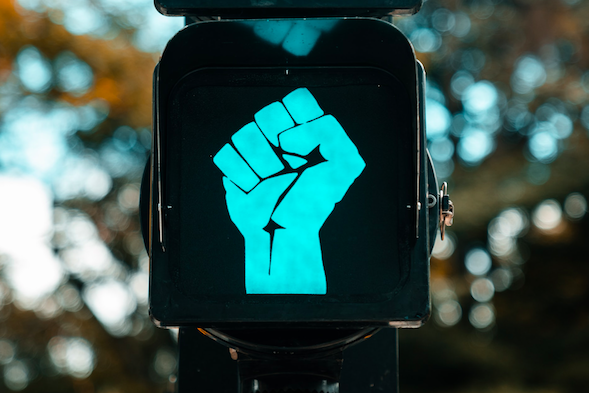
Despite many environmentalists’ insistence that their movement aligns environmental justice with sustainability and the fight against climate change, here’s the stubborn reality: Many critics will point out that such activism is still occurring within a very white world.
As an example, witness many a journalists' inboxes in the days and weeks before Earth Day, when public relations reps sent emails full of boasts about how former tech bros were doing good to ensure we could live in a green and sustainable world. “Oh, and how is their environmental justice work benefitting poorer urban and rural areas, as well as communities of color?” came a curious reply. Almost always, the answer was crickets.
Bottom line: Many communities still feel as if their voices are not being heard, from poorer neighborhoods to Indigenous communities. Plus, ongoing violence against Black Americans doesn't give credence to any assumptions that things are actually getting better instead of getting worse.
To that end, the Movement for Black Lives (M4BL) has launched what it calls the Red, Black and Green New Deal initiative: a multi-year campaign that aims to develop a climate action agenda while also doing its part to defend Black lives.
“Centering Black people and experiences in climate conversations, policies and solutions means honoring the wisdoms, insights, and stories of those most impacted by climate change and ensures they are a part of leading, identifying solutions, setting priorities, creating policy agendas, and shifting narratives,” the M4BL wrote in an emailed announcement last week.
Organizers seek what they call a National Black Climate Agenda comprised of six pillars: water, energy, land, labor, economy and democracy. While the agenda’s backers make it clear that standard policies like clean water and renewables are important, so too are policies that Black Americans say would level the playing field. They include the guarantee of fair treatment in the mortgage lending process, fair wages and affordable healthcare, and guaranteed access to ballot boxes so they can participate in truly free and fair elections. After all, if Black Americans aren’t able to have a chance at voting for leaders who will actually strive to make progress on climate change, each of the pillars mentioned in this agenda will be extremely difficult to achieve.
Aligned with M4BL is the Gulf Coast Center for Law and Policy as well as Greenpeace, the latter of which released a report it says links the lack of environmental justice within communities of color to the U.S. fossil fuels sector. “The current political opportunity to enact policies to address climate change is also a chance to reduce public health harms and partially alleviate the history of environmental racism,” the Greenpeace report reads, “but only if those goals and stakeholders are included in policy design from the start.”
M4BL and its partners will host a virtual summit on May 11 to hear out ideas on what it says is a push for “Black liberation at the center of the global climate struggle, and [addressing] the impact of climate change and environmental racism on Black communities.”
Image credit: Maick Maciel/Unsplash

Leon Kaye has written for 3p since 2010 and become executive editor in 2018. His previous work includes writing for the Guardian as well as other online and print publications. In addition, he's worked in sales executive roles within technology and financial research companies, as well as for a public relations firm, for which he consulted with one of the globe’s leading sustainability initiatives. Currently living in Central California, he’s traveled to 70-plus countries and has lived and worked in South Korea, the United Arab Emirates and Uruguay.
Leon’s an alum of Fresno State, the University of Maryland, Baltimore County and the University of Southern California's Marshall Business School. He enjoys traveling abroad as well as exploring California’s Central Coast and the Sierra Nevadas.














